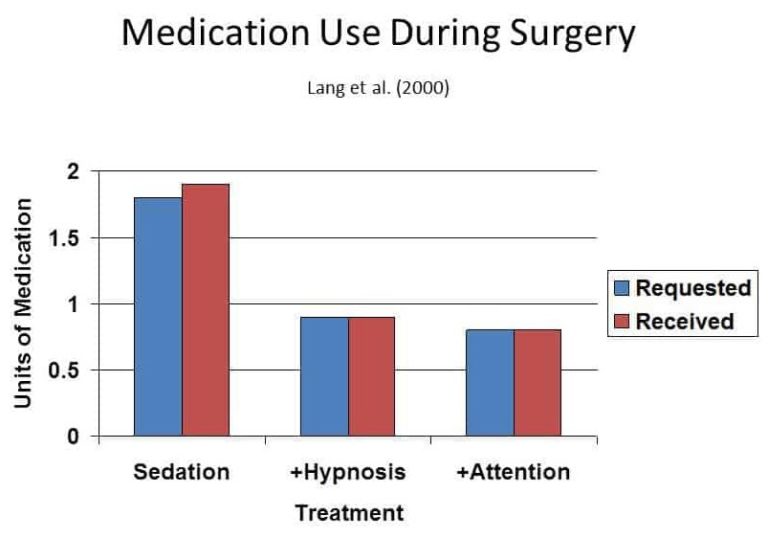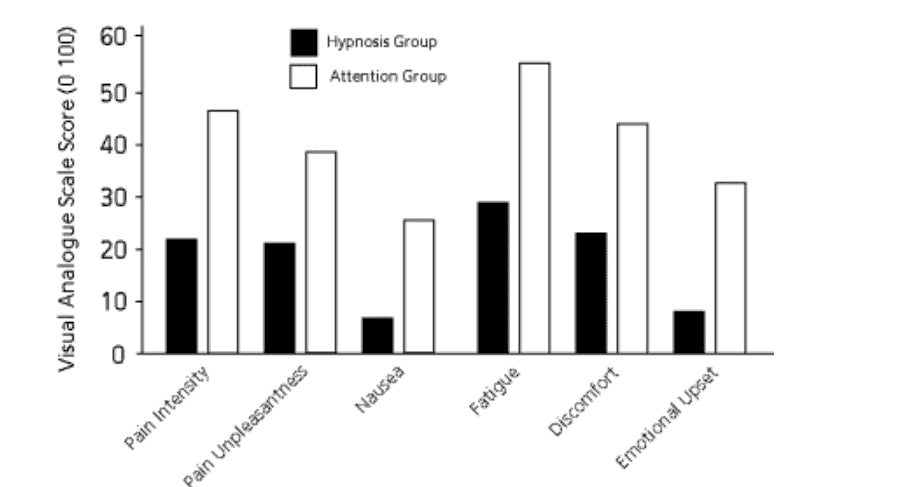
Annemieke Van Dam
(DipCAH, RSH.DipPH, WCA Cert. Wellness Coaching)
Note — The article was checked and updated August 2023.
Hypnotherapy consists of different psychological methods where through focusing a person’s attention, they can have more control over their condition or disorder.
In this article, we will discover the origins of hypnotherapy, different types and approaches, and when it is best to use hypnotherapy to achieve best results in creating positive behavioral changes.
What is hypnotherapy?
Hypnotherapy is a combination of different therapies such as
- Cognitive behavioral therapy
- Neuro-linguistic programming
- Talking therapy
- Psychoanalysis (which includes hypnosis).
Research is still being done to determine how hypnosis really works because depending on the unique experience and perceptions of individuals, hypnosis might have a different effect.
Hypnosis is not a therapy but a tool for facilitating change
Doctors Bran Alman, clinical psychologist, and psychotherapist Peter Lambrou, describe hypnosis as:
A state of mind in which suggestions are acted upon much more powerfully than is possible under normal conditions. While in hypnosis, one suppresses the power of conscious criticism.
One’s focus of attention is narrower and one’s level of awareness on a focal point is much higher than if one were awake. During this heightened focus and awareness, suggestions appear to go directly to the unconscious mind.
History of hypnotherapy
Hypnotherapy dates back as far as 3000 BC and has been practiced in different cultures. Examples include the Greek, Egyptian and Indian healers, shamans, witchdoctors, wise women, Indian yogis and Persian magi.
RELATED — The Origins of Yoga: History, Development and Modern Times
Egyptians were using sleep temples, where priests considered sleep to have special healing powers. Temples of Imhotep were popular for “sleep therapy” and Shrine sleep is still found in some areas of Africa and Middle East even today.
Hebrews utilised chanting, breathing exercises and meditation to produce an ecstasy type state called Kavanah (know) as a form of self-hypnosis.
Greeks and Romans used the Aesculapian sleep temples where patients were put in a trance like sleep for healing.
It is thought that Moses, Jesus, Mohammed, Ghengis Khan, Richard the Lion Heart and Napoleon all practiced forms of hypnosis.
The modern era of hypnosis began with an Austrian physician, Franz Mesmer (1734-1815). Mesmer was known for his theory of “animal magnetism” including passing hands over parts of the subject’s body which would effect a cure.
Some disputed his work and Mesmer’s techniques were considered unscientific by the medical community.
Others noted for their contribution to hypnosis were Marquis de Puysegur (1751-1825) for his work on somnambulism, the Abbe de Faria for lucid sleep (1756-1819), and John Elliotson for mesmerism and phrenology (1791-1868).
A Scottish surgeon James Braid (1795-1860) became aware of many of his patients experiencing a trance-like state when they kept their eyes focused on one spot for a period of time.
Hypnosis was used prior to surgery until the introduction of anaesthetics
There were quite a few other individuals who contributed to hypnosis such as Ivan Pavlov, Sigmund Freud, John Hartland and others.

Source: Lang et al. Adjunctive non-pharmacological analgesia for invasive medical procedures: a randomised trial. The Lancet (April 2000).
Important to mention here is Milton Erickson (1901-1980) who was a psychiatrist and psychologist, and who really revolutionised hypnotherapy.
We talk about Erikson more in our other article on neuro-linguistic programming.
How does hypnotherapy work?
Research conducted by Stanford Medicine indicated that the areas of the brain that are most affected when a person is in hypnosis are those that play a role in the action control and awareness.[1]
- A hypnotherapist induces a state of intense focused attention through a process which is guided by verbal cues and repetition.
- The person then enters a hypnotic state of focused attention which is similar to sleep. We are aware of everything that is going on, but our mind is now more focused and open to suggestions.

While hypnosis is central to hypnotherapy, other interventions can also be included. Commonly used techniques include:
- Neuro-Linguistic Programming (NLP)
- Talking therapy
- Cognitive behavioural therapy (CBT)
- Client education
- Identifying strategies and planning for lifestyle changes
It is thought that while in a state of hypnosis, the mind may clear a way for deeper processing and acceptance than when it is in its normal conscious state.
Different types of hypnotherapy
Hypnotherapy typically involves several approaches to achieve the best outcome for the person.
Solution, behavioural, cognitive, analytical and regressive types of hypnotherapy are most commonly used.
The type of hypnotherapy used can vary depending on the hypnotherapist’s expertise, specialisation, philosophical approach, clinical preferences and what the hypnotherapist believes will achieve the best outcome.[2]
Solution-focused hypnotherapy
Solution-focused therapy is a type of talking therapy that combines psychotherapy with hypnosis.
It focuses on utilising practical, structured strategies to help individuals create solutions for their problems rather than focusing on the problem itself.[3]
Behavioural hypnotherapy
Behavioural hypnotherapy focuses on modifying behaviour change.
The hypnotherapist helps the client achieve a change in behaviour by making suggestions to support the desired changes.
Ericksonian hypnotherapy
Ericksonian hypnotherapy was developed by Dr Milton Erickson. This method of hypnotherapy involves the use of indirect suggestions to help with therapeutic behavioural changes.
Ericksonian hypnotherapy is a conversation between the hypnotherapist and the patient using
- metaphors
- contradictions
- symbols
- word patterns
- antidotes
to influence behaviour change rather than the use of direct instructions.[4]
RELATED — Neuro-Linguistic Programming: Key Methods and Techniques (Part 1)
Clinical hypnotherapy
Clinical hypnotherapy means using advanced methods of hypnosis and other techniques to treat a variety of medical and psychological problems performed in a clinical setting.
Cognitive hypnotherapy
Cognitive hypnotherapy focuses less on behaviours and habits and more on the thoughts and beliefs relating to those behaviours.
Sometimes the mind can “get stuck” in unhelpful ways of thinking, and we might need some help to alter our beliefs on a subconscious level, so we can think about things differently.
This method of hypnotherapy draws from a range of different therapies and theories, such as
- Cognitive behavioural therapy (CBT)
- Rational emotive behaviour therapy (REBT)
- Acceptance and commitment therapy (ACT)
- Mindfulness
Timeline / Regression hypnotherapy
Regression hypnotherapy is based on the concept that memories are stored in a timeline sequence.
In this type of hypnotherapy, the hypnotherapist guides the subject back to past events where they can release unwanted beliefs and emotions that are linked to the past.
Analytical (hypno-analysis) therapy
Hypno-analysis therapy is an approach taken from the analytical school of psychotherapy. It identifies why a person has a problem, or why they’re doing specific things.
Analytical hypnotherapy works to help the person find root causes and insights into themselves, meaning – we might have the answer to a specific problem, but are not aware that we do.
Past life regression hypnotherapy
Past life regression therapy involves time line regression to experiences in a past life which some individuals believe may be influencing their current life and causing them problems.
The goal of past life regression hypnotherapy is to cut ties with the past and remove the connection to unhelpful past events.
Hypno-counselling
Hypno-counselling is the use of counselling techniques alongside hypnotherapy to assist a client overcome a problem or change thinking and behaviour.
Other hypnosis techniques
- Direct suggestions
- Indirect suggestions
- Metaphor
- Language patterns
- Guided imagery

- Physical contact (with the clients permission, e.g. Glove Anaesthesia)
- Muscle relaxation
- Client count down
- Pacing and leading
Mental health and conditions that hypnotherapy can help with
Hypnotherapy is a tool that can be used on its own or along other forms of psychological or medical treatment for medical or mental health conditions. Hypnotherapy can be used to treat:
- Addictions
- Anxiety
- Burnout
- Asthma
- Cessation of smoking
- Chemotherapy
- Depression
- Gastrointestinal issues
- Grieving
- Hypertension
- Learning disorders
- Migraines
- Panic attacks Phobias
- PTSD
- Relationships
- Sexual issues
- Sleep disorders
- Skin issues
- Speech impediments
- Teeth grinding and other oral conditions
- Weight loss and obesity[5]
RELATED — 12 Health Benefits of Hypnosis
What does research say about the effectiveness of hypnotherapy?
Researchers conclude that although the great majority of people can be responsive to hypnosis to some degree, not everyone is equally responsive.
The research suggests that those who are more responsive to hypnosis tend to be more
- imaginative
- have detailed imagery
- can be more deeply absorbed in experiences
- process information more effortlessly
- have stronger expectations of their ability to respond and show little change in these capacities over time[4]
Some hypnosis clinicians argue that research ignores other variables that should be taken into account which may impact positively on the success of hypnotherapy.
A key example includes the uniqueness of the patient and the hypnotherapist, and the relationship they have with each other.
A study comparing the effectiveness of different methods of therapy conducted by Alfred Barrios in 1970 concluded that that
- Psychoanalysis (after 300 sessions) was 38% effective
- Behaviour therapy (after 22 sessions) was 72% effective
- Hypnotherapy (after 6 sessions) was 93% effective

Source: Montgomery, GH., DuHamel, KN., Redd WH. A meta-analysis of hypnotically induced analgesia: how effective is hypnosis? International Journal of Clinical and Experimental Hypnosis. (2000)
This suggests that hypnotherapy is highly effective, with hypnosis being additionally effective when combined with other therapies and treatments.[6]
Further studies citing results and the effectiveness of hypnotherapy can be found here.
When should hypnotherapy be used?
For hypnosis to be successful it requires the person to be a participant in the process. The person’s belief, participation and cooperation in the hypnotherapy process is critical to success.
Hypnosis will not make the impossible possible
But will help both patients and professionals to manage a variety of conditions.
Are there risks to hypnotherapy?
Hypnotherapy is generally considered a safe procedure but may in rare cases cause
- anxiety
- dizziness
- drowsiness
- false memories[7]
Hypnosis for people with epilepsy is subject to debate because there may be a heightened potential for the client to experience a seizure while under hypnosis.
When should hypnotherapy be avoided?
The exceptions to using hypnotherapy are with people who are experiencing certain mental health conditions, addictions and seizures.
Studies also conclude that hypnotherapy is not suitable for those experiencing active mental disorders such as
- Hallucinations
- Delusions
- Drug and alcohol misuse
- Schizophrenia
Individuals wanting hypnotherapy for pain or if they experience seizures must seek professional medical assessment, advice and appropriate treatment prior to hypnotherapy.
Related Questions
1. Does hypnotherapy cause you to forget what happened?
Hypnosis does not increase memory recall but may decrease it.
Memories cannot be erased by hypnosis but how they are recalled can be influenced by suggestions.[8]
2. Can I hypnotise myself?
Anyone can learn self-hypnosis as a part of an overall hypnotherapy programme.
Most hypnotherapists ask their clients to listen to out-of-clinic hypnosis recordings regularly as a part of their hypnotherapy programme.
3. What are the limitations of hypnotherapy?
Hypnosis cannot:
- Repair congenital damage or genetic conditions
- Prevent the aging process
- Help you to achieve anything that is not physically possible
- Reverse diseases
To be successful with hypnotherapy a person must
- Want to achieve a hypnotic state
- Be able to concentrate their mind on instructions given by the hypnotherapist and be capable of responding
- Have a good level of trust and rapport with the hypnotherapist
Annemieke Van Dam is the founder of Livewell Hypnotherapy, and is a hypnotherapist and life and wellness coach operating onsite and online, New Zealand wide and internationally.
Prior to becoming a hypnotherapist, Annemieke was a manager, advisor and consultant working in the corporate, education and local government sectors in the areas of health, safety and wellbeing.
After experiencing personal challenges, Annemieke was determined to establish her practice and help others in a more direct and meaningful way. Now, she is looking to reach and help more people on their journey to wellbeing.
For more similar articles please check our page on Mental Health.
References
(1) Williams,C,. (2016) Study identifies brain areas altered during Hypnotic Trances. Retrieved from https://med.stanford.edu/news/all-news/2016/07/study-identifies-brain-areas-altered-during-hypnotic-trances.html
(2) Fulcher, R,. (n.d.) Types of Hypnotherapy. Retrieved from https://www.hypnotic.com/types-of-hypnotherapy
(3) Association for Solution Focused Hypnotherapy. (2021) What is Solution Focused Hypnotherapy? Retrieved from https://www.afsfh.com/solution-focused-hypnotherapy/
(4) British Hypnosis Research and Training Institute (2020) “What is Ericksonian Hypnosis? Definition and History. Retrieved from https://britishhypnosisresearch.com/about-ericksonian-hypnotherapy/
(5) Resources to Recover. (2019) Hypnotherapy in Mental Health Treatment – How Does it Work? Retrieved from https://www.rtor.org/2019/03/05/hypnotherapy-in-mental-health
(6) Barrios, A,. (1970) Hypnotherapy: A reappraisal Psychotherapy: Theory, Research and Practice. Retrieved from https://www.scribd.com/document/385627420/alfred-a-barrios-hypnotherapy-a-reappraisal-pdf
(7) Benisek, A,. (2020) Hypnosis Risks and Side Effects. Retrieved from https://www.webmd.com/mental-health/hypnosis-risks-side-effects#091e9c5e81f8270e-1-3
(8) Jones, S,G,. (n.d.) Can You Use Hypnosis to Forget Painful memories. Retrieved from https://stevegjones.com/blog/can-use-hypnosis-forget-painful-memories/






